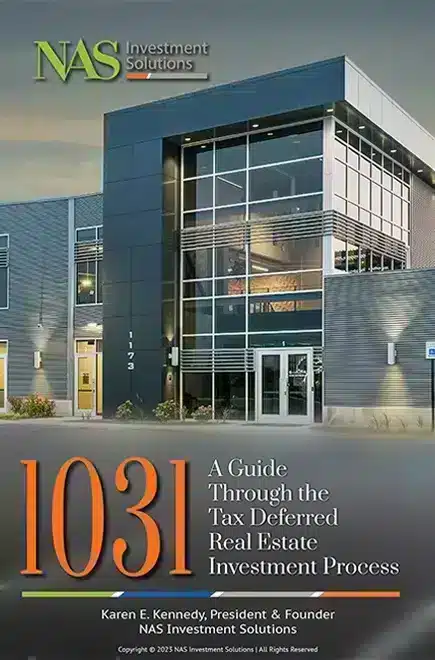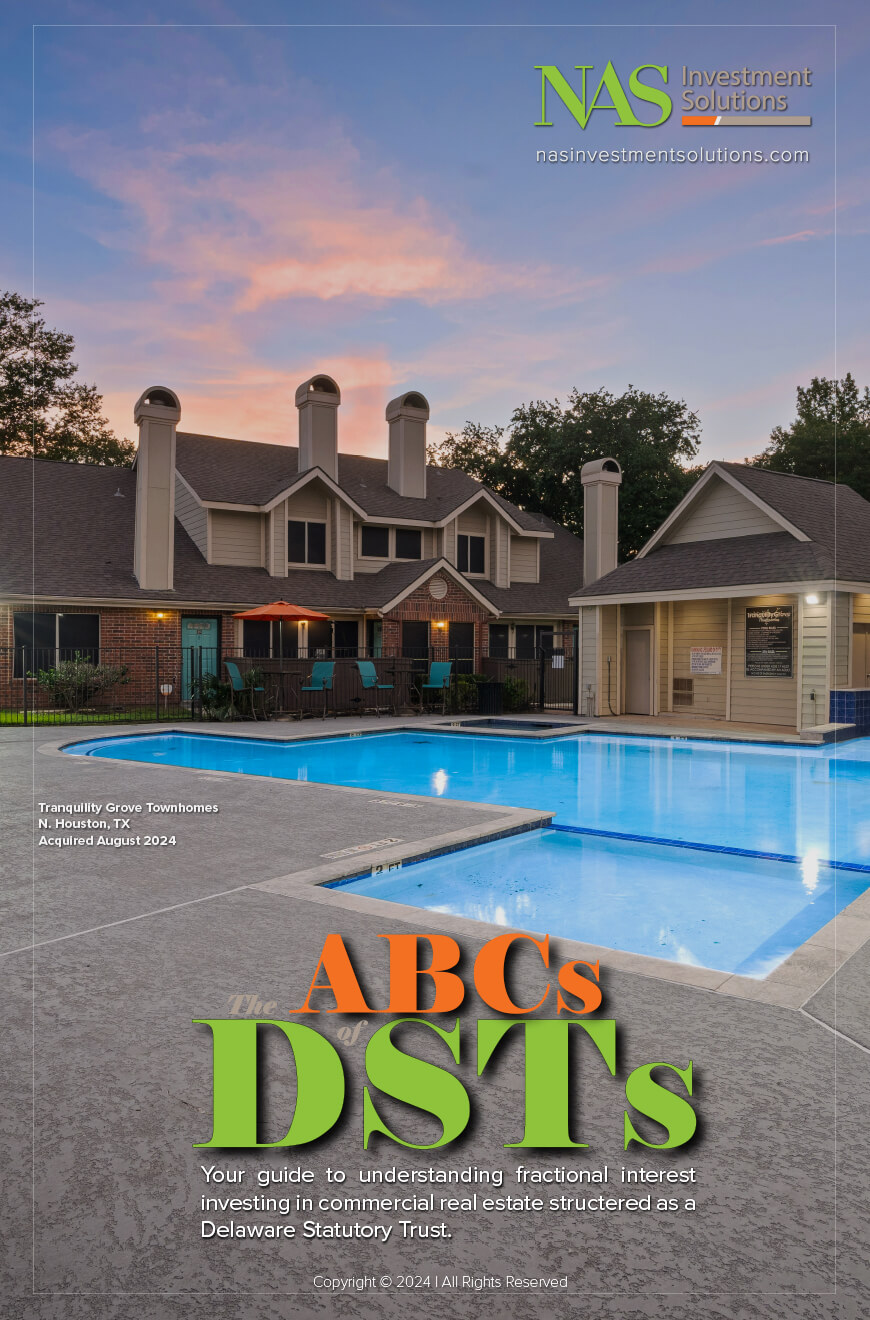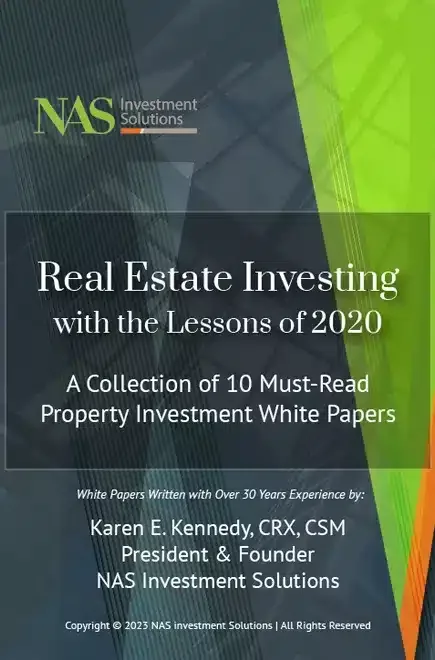Article Updated July 25, 2024
The IRS requires that money generated from the sale of the relinquished property must be held by a qualified intermediary until the replacement property is purchased. If the investor touches or in any way controls funds used for a 1031 exchange, the exchange will be disallowed by the IRS and tax on the capital gains must be paid.
A Qualified Intermediary is an independent third party who acts on behalf of the exchanger as a facilitator of a 1031 exchange. Also known as a “QI”, “facilitator”, “intermediary”, or “accommodator”, a Qualified Intermediary is one of the safe harbor regulations created by the Internal Revenue Code.
To defer the payment of capital gains tax due, the QI must directly receive the sales proceeds from an investor’s relinquished property. In practice, the Qualified Intermediary serves as the seller of the relinquished property, uses the proceeds to acquire the replacement property, and then transfers the deed for the replacement property to the investor.
Critical to remember here is that the seller of the property must not ever touch/receive the funds which come at the time of the close of escrow from the property they are selling.
What role do Qualified Intermediaries play in the 1031 exchange process?
In addition to holding and releasing funds, Qualified Intermediaries prepare the legal documents and ensure the 1031 exchange process complies with IRS guidelines. Investors must enter into a written agreement with their QI prior to the closing of the relinquished property.
The services investors can expect to receive from a Qualified Intermediary include:
- Coordinates with the exchanger on the 1031 exchange structure
- Documents prepared for the relinquished and replacement properties
- Provides 1031 exchange documents to the escrow or title company, and closing attorney
- Creates a contractual arms-length transaction between the exchanger and the QI, transfers the property being relinquished to the QI, conveys the relinquished property to the new buyer
- Directly obtains the funds from the relinquished property and holds in an escrowed account on behalf of the exchanger, ensuring that the exchanger never has constructive receipt of the funds
- Receives and holds written information from the exchanger regarding potential replacement properties identified within 45 days of the sale of the relinquished property
- After exchanger has identified a replacement property, transfers funds for the purchase and disburses them to the title or escrow company
- Acquires the replacement property on behalf of the exchanger within 180 days of the sale of the relinquished property, then transfers title deed to the exchanger
- Provides a complete account of the 1031 exchange for the exchanger’s records
- Ensures that the 1031 exchange complies with IRS rules throughout the entire process
Who is disqualified from serving as a QI?
According to the Internal Revenue Code, a Qualified Intermediary must be an independent third party. Examples of people or entities that cannot serve as a QI are:
- Seller (also known as the taxpayer, exchanger, or relinquisher)
- Anyone with a family relationship to the seller
- Anyone with a prior financial or business relationship to the seller, over the preceding two years
- Employees of the seller
- Real estate agent of the seller
However, a company that has provided routine financial services to the exchanger, such as a bank, title insurance company, or escrow company may still legally act as a qualified intermediary for the 1031 exchange.
Is the QI industry regulated?
There is little federal regulation governing Qualified Intermediary entities. When the Dodd-Frank Wall Street Reform and Consumer Protection Act was signed into law in July 2010, the Consumer Financial Protection Bureau(CFPB) was created and assigned the task of reviewing the QI industry. Two years later, the CFPB issued their report, but made no recommendations for federal regulation.
However, there are nine states that have enacted legislation to oversee QI entities:
- California
- Colorado
- Connecticut
- Idaho
- Maine
- Nevada
- Oregon
- Virginia
- Washington
Important questions to ask before selecting a Qualified Intermediary
State oversight of Qualified Intermediaries relates mainly to licensing, escrow account requirements, surety bonds, and errors and omission policies and coverage. So, it’s important for investors to conduct additional in-depth due diligence when selecting a Qualified Intermediary.
Important questions to ask before selecting a QI include:
- Is the Qualified Intermediary institutional or independent, a regulated or unregulated entity, and is it the parent corporation or a subsidiary?
- How long have they been acting as a Qualified Intermediary?
- How many exchanges have they completed in the last three years?
- What is the average dollar amount per 1031 exchange transaction?
- What is the total dollar amount of all exchanges completed over the three-year time period?
- What percentage of the QI’s business does each exchange type account for: traditional delayed exchange, reverse, simultaneous, and improvement exchange?
- Will the funds from the relinquished property be held in a segregated qualified trust or escrow account, or will the money be comingled?
- Are the funds segregated, or does the QI only provide a separate accounting of the total funds?
- Will the 1031 exchange funds be held in a reputable FDIC insured bank?
- Are internal control policies and procedures in place, and will a copy of the controls be provided for review?
- Does the Qualified Intermediary carry fidelity bond coverage and E&O insurance?
- Is the bond and insurance coverage greater than the highest average amount of total QI funds held by the Intermediary for the preceding 12 months?
- Is the coverage limited to criminal actions only, are officers and principals excluded from the coverage, and what is the financial ability of the issuer of the fidelity bond and E&O insurance?
- What happens to the funds being held if the QI is sold, is incapacitated or dies, files for bankruptcy, or is unable to meet its financial obligations to the taxpayer?
- Will the Qualified Intermediary provide references?
Not all 1031 Qualified Intermediaries are created equal
While it may appear to an investor that there are plenty of QIs to choose from, the fact is that not all Qualified Intermediaries are created equal. Very few would be able to provide satisfactory answers to the above questions.
1031 tax deferred exchanges offer a proven strategy to defer capital gains, reinvest capital in Class A income-producing assets, and help maximize investment portfolio growth. When choosing a Qualified Intermediary for your 1031 exchange, select only those that offer the experience, transparency, and compliance with tax law to protect your hard-earned investment capital.









